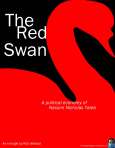 Calvin Candie: I’m curious, what makes you such a mandingo expert?
Calvin Candie: I’m curious, what makes you such a mandingo expert?
Django: I’m curious what makes you so curious.
–Quintin Tarentino (2012)
A friend’s Facebook post inspired this rejoinder. It’s no sectarian dig, mind you, no sucker punch.
I mean only to dial up a call I made here previously for the kind of people’s science that in Owenite England, unchained from the socioeconomic dictates of the aristocratic church it fought, prefigured Victorian naturalists by decades,
The term ‘hall of science’ was first mooted in the Co-operative Magazine of October 1829, which reported a lecture by Frances Wright: ‘Turn your churches into halls of science, and devote your leisure day to the study of your own bodies, the analysis of your own minds, and the examination of the fair material world which extends around you.’
In Alfred Russel Wallace, a scion of the halls of science, like that of the South London Rational School depicted in our graphic, the largely independent lineage matched the reluctant Mr. Darwin to a theory of natural selection. No mean feat for a people’s science or pscience (for which, to riff off a recent flick, the “p” is silent).


